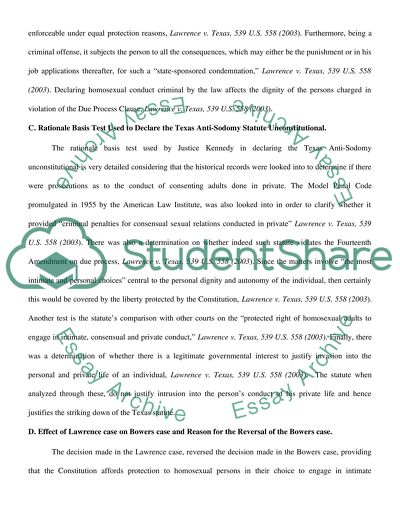Cite this document
(“Lawrence v. Texas Essay Example | Topics and Well Written Essays - 1500 words”, n.d.)
Lawrence v. Texas Essay Example | Topics and Well Written Essays - 1500 words. Retrieved from https://studentshare.org/miscellaneous/1545961-lawrence-v-texas
Lawrence v. Texas Essay Example | Topics and Well Written Essays - 1500 words. Retrieved from https://studentshare.org/miscellaneous/1545961-lawrence-v-texas
(Lawrence V. Texas Essay Example | Topics and Well Written Essays - 1500 Words)
Lawrence V. Texas Essay Example | Topics and Well Written Essays - 1500 Words. https://studentshare.org/miscellaneous/1545961-lawrence-v-texas.
Lawrence V. Texas Essay Example | Topics and Well Written Essays - 1500 Words. https://studentshare.org/miscellaneous/1545961-lawrence-v-texas.
“Lawrence V. Texas Essay Example | Topics and Well Written Essays - 1500 Words”, n.d. https://studentshare.org/miscellaneous/1545961-lawrence-v-texas.


